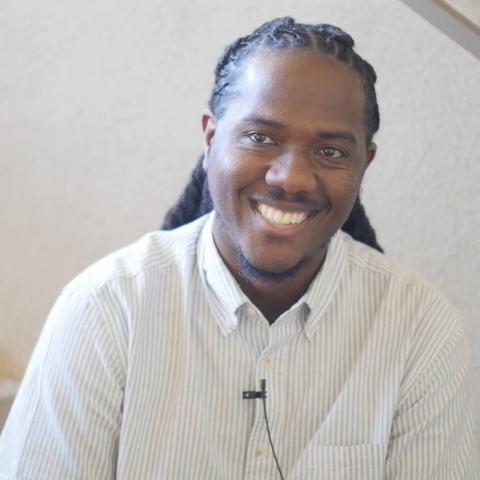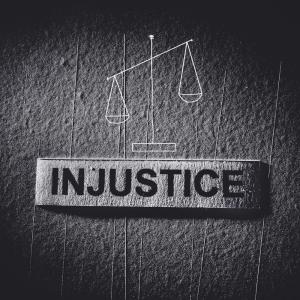
Dominique DuBois Gilliard is the director of racial righteousness and reconciliation for the Evangelical Covenant Church. He is the author of Rethinking Incarceration: Advocating for Justice that Restores, which won a 2018 Book of the Year Award for InterVarsity Press and was named Outreach Magazine’s 2019 Social Issues Resource of the Year, and Subversive Witness: Scripture’s Call to Leverage Privilege. Gilliard also serves as an adjunct professor at North Park Theological Seminary and on the board of directors for the Christian Community Development Association. In 2015, the Huffington Post named him one of the “Black Christian Leaders Changing the World.
Posts By This Author
Are You Leveraging Your Privilege or Exploiting It?
Questions to help you use your privilege for the flourishing of all.
The Unbearable Whiteness of Being
Part of "setting captives free" is helping see the invisible bonds of structural racism.
I WAS ONCE told that “racism is our nation’s original sin.” This statement jolted me. While I didn’t dispute its truth, I have come to realize racism is much more complex than this.
In order to dismantle the structural sin of racism, we have to first set it within a larger context that acknowledges racism’s sociopolitical dependency and structural interconnectedness.
First: “race” is not real. It is not a scientific category; biologically, it does not exist. Race is a social construct, something built systematically. It has no inherent value or true significance beyond what we give it. In order for race to have real social consequences—which it undoubtedly does—there must be other phenomena at work that validate, sustain, and reinforce the social significance of race.
As a result of sin in our fallen world, human bodies are appraised and given a value based upon certain criteria. As a result of sin, men are privileged over women, white skin is privileged over darker skin, able bodies are privileged over disabled bodies. Historically, certain bodies are acclaimed while others are defamed. Race plays a starring role in this larger drama of embodiment.
Black Future Month: Uncovering the Intersections of Injustice
Black Future Month, a term coined by the new black vanguard, seeks to build upon the robust legacy of our foreparents while refusing to nostalgically rest upon their laurels. Black Future Month affirms our collective history of struggle, resilience, and achievement, while centering our present predicament in all its urgency. As this movement progresses, it’ll be imperative that we retain the spiritual foundation which anchored the freedom fighting of our ancestors,’ but this retention cannot come at the expense of passing the baton off to emerging leadership. We must go forward together, acknowledging that we need the collective wisdom of our people to navigate the troubled waters that surround us on all sides.
Black Future Month emerges from the #BlackLivesMater movement and the awareness that we’re in the midst of a watershed moment. There are currently “more African-American adults under correctional control, in prison or jail, on probation or parole, than were enslaved in 1850, a decade before the Civil War.” Black people currently constitute 12 percent of our nation’s populace, yet represent 40 percent of the nation’s incarcerated population. It’s estimated that 1 in every 3 black males will serve time in jail or prison in their lifetime and that 1 in 13 black people cannot vote due to felon disenfranchisement. As bleak as these realities are, mass incarceration is just a portion of the burden we’re bearing.
Reflections on Race, Faith, and Gingrich
In light of the Zimmerman verdict, it’s taken my all to keep my spirit afloat. Upon the verdict’s announcement, I sat in shock and dismay, perplexed by the outcome. Despite anything revealed through the trail, a few facts remain: Martin, an unarmed teenager was followed and pursued by an armed adult, Zimmerman. Ultimately, Martin was fatally shot by Zimmerman, and Zimmerman’s received no legislative punishment for killing Martin.
Upon awakening from the trance of the verdict, I began crying as I held my four-month old son. I wept because as an African-American male, I’m fully cognizant of how dark brown skin will exacerbate his odds of being profiled and criminalized as Martin was. I am also aware that the neighborhood we reside in, by choice, on account of our faith, also increases his chances of being stereotyped. Nevertheless, irrespective of how stacked the odds are against someone, odds never define a person’s existence. Through God’s grace, communal support, social capital, hard work, and discipline my son can overcome these odds; but I must admit, my faith in this took a blow Saturday.


